ESSENTIAL RECOMMENDATIONS
Provisioning by Banks During the COVID-19 Pandemic
Provisions for loans are crucial for the stability of banks as they serve as a safety "buffer" to mitigate the risks of defaults and systemic risks in the banking sector. Loan loss provisions are typically divided into two components: mandatory and discretionary. Mandatory provisions are based on assessments of potential future credit losses, while discretionary provisions largely depend on the evaluations made by bank managers…
Provisions for loans are crucial for the stability of banks as they serve as a safety "buffer" to mitigate the risks of defaults and systemic risks in the banking sector. Loan loss provisions are typically divided into two components: mandatory and discretionary. Mandatory provisions are based on assessments of potential future credit losses, while discretionary provisions largely depend on the evaluations made by bank managers. Consequently, discretionary loan loss provisions can become a tool for bank managers to manipulate financial reporting to meet capital management goals, reduce income volatility, and signal to investors. When banks manipulate financial statements through provisions, it can lead to information distortion for shareholders, banking regulators, and the market, especially when the economy experiences instability.
Using data from U.S. banks from Q1 2020 to Q2 2021, this study explores the exogenous nature of the COVID-19 pandemic as a context to examine whether banks exploited their decision-making authority regarding loan provisions to cope with the crisis, and to what extent. The COVID-19 pandemic represented an unprecedented shock, completely unforeseen and beyond the control of all economic agents, including banks.
Using Provisions to Manipulate Financial Reporting
Using a difference-in-difference (DiD) model, the research findings indicate that the behavior of using provisions to manipulate financial reporting is more prevalent among banks that suffered significant losses due to the COVID-19 pandemic. The results also show that the accounting information of banks became less transparent, or even misleading, for investors during the crisis. Furthermore, during the pandemic, banks increasingly tended to manipulate financial statements to adjust earnings, provide information to investors, and manage their capital requirements. However, larger banks and those with better capitalization were less likely to manipulate their financial reports. The study also found evidence that banks with a higher ratio of non-performing loans to total loan portfolios tended to manipulate their financial reporting more often.
Governance Implications
Banking regulators need to ensure compliance, safety, and soundness of banks by enforcing sound accounting principles and additional supervisory standards to limit the manipulation of financial reporting, especially during crises. Such accounting disciplines and legal requirements will help minimize financial reporting manipulation and enhance transparency within the banking sector. These measures could also strengthen the resilience of banks under adverse economic conditions. Additionally, policymakers should pay attention to disclosure standards to clarify the flow and use of capital by commercial banks. This will help regulatory authorities understand the effectiveness of commercial banks in complying with regulations and enable investors to assess the actual financial situation of these banks.
>>> VNU UNIVERSITY OF ECONOMICS AND BUSINESS
Dr. Nguyễn Phú Hà
Dr. Lưu Ngọc Hiệp
Ms. Cù Nguyễn Hà Trang
Dr. Nguyễn Thị Phương Anh
Nguyễn Trâm Anh, Institute of Economics and Strategic Management
OTHERS
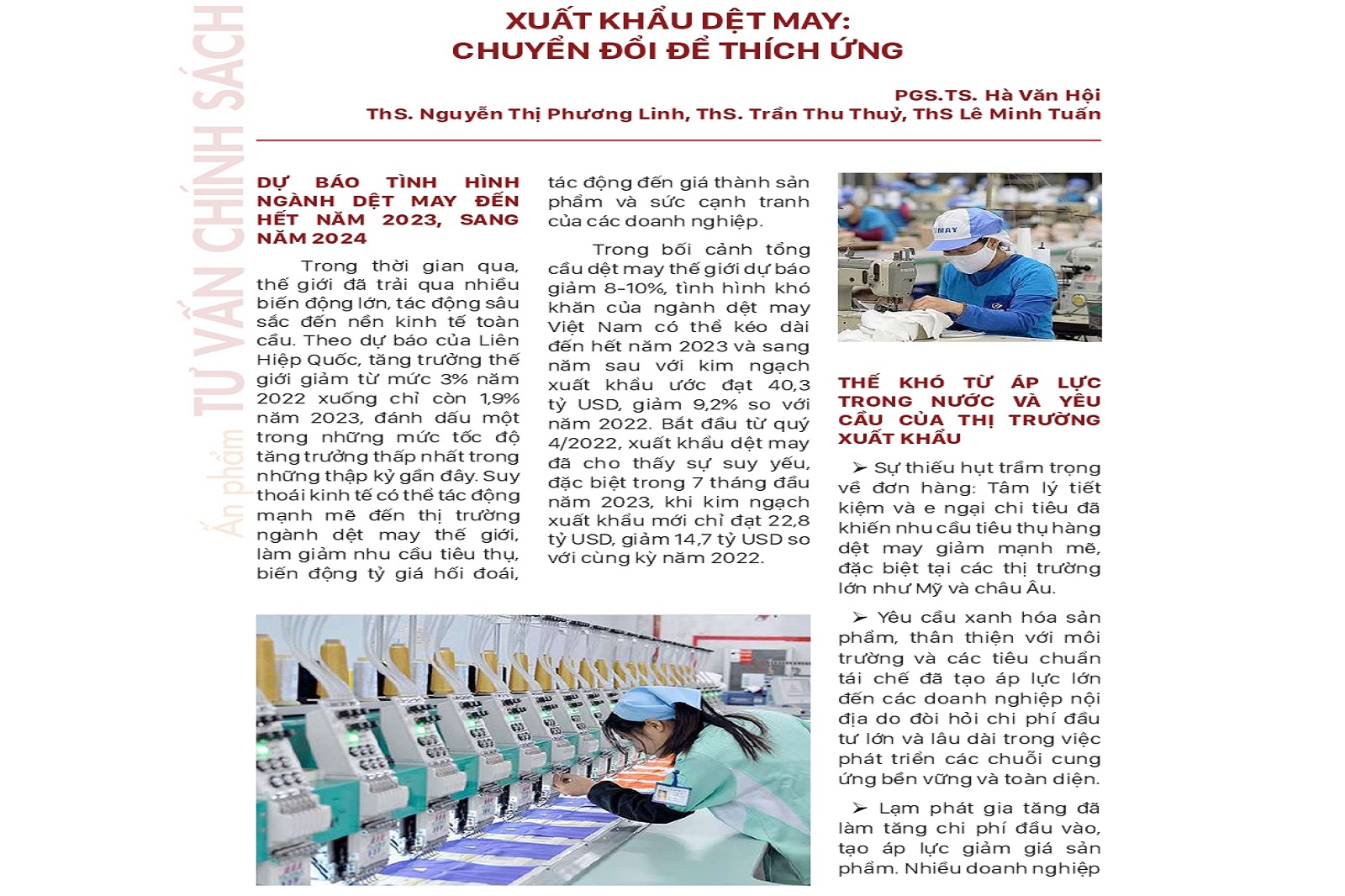
Textile and Garment Exports: Transforming to Adapt
Recently, the world has experienced significant upheavals that have profoundly impacted the global economy. According to UN forecasts, global growth is ...
More details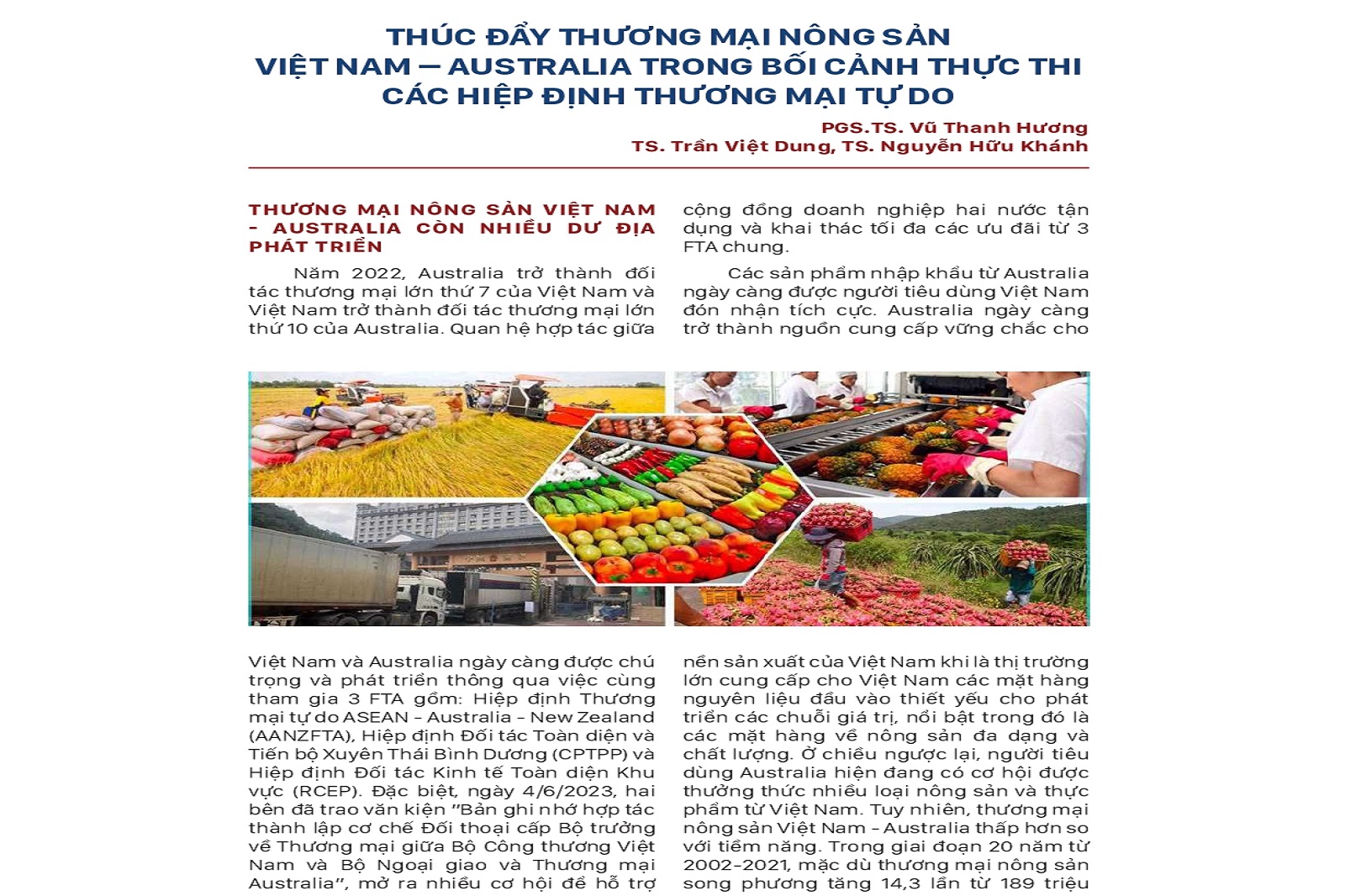
Promoting Vietnam-Australia Agricultural Trade in the Context of Implementing Free Trade Agreements
Australian imports are increasingly well-received by Vietnamese consumers. Australia is becoming a reliable supplier for Vietnam's production needs, providing ...
More details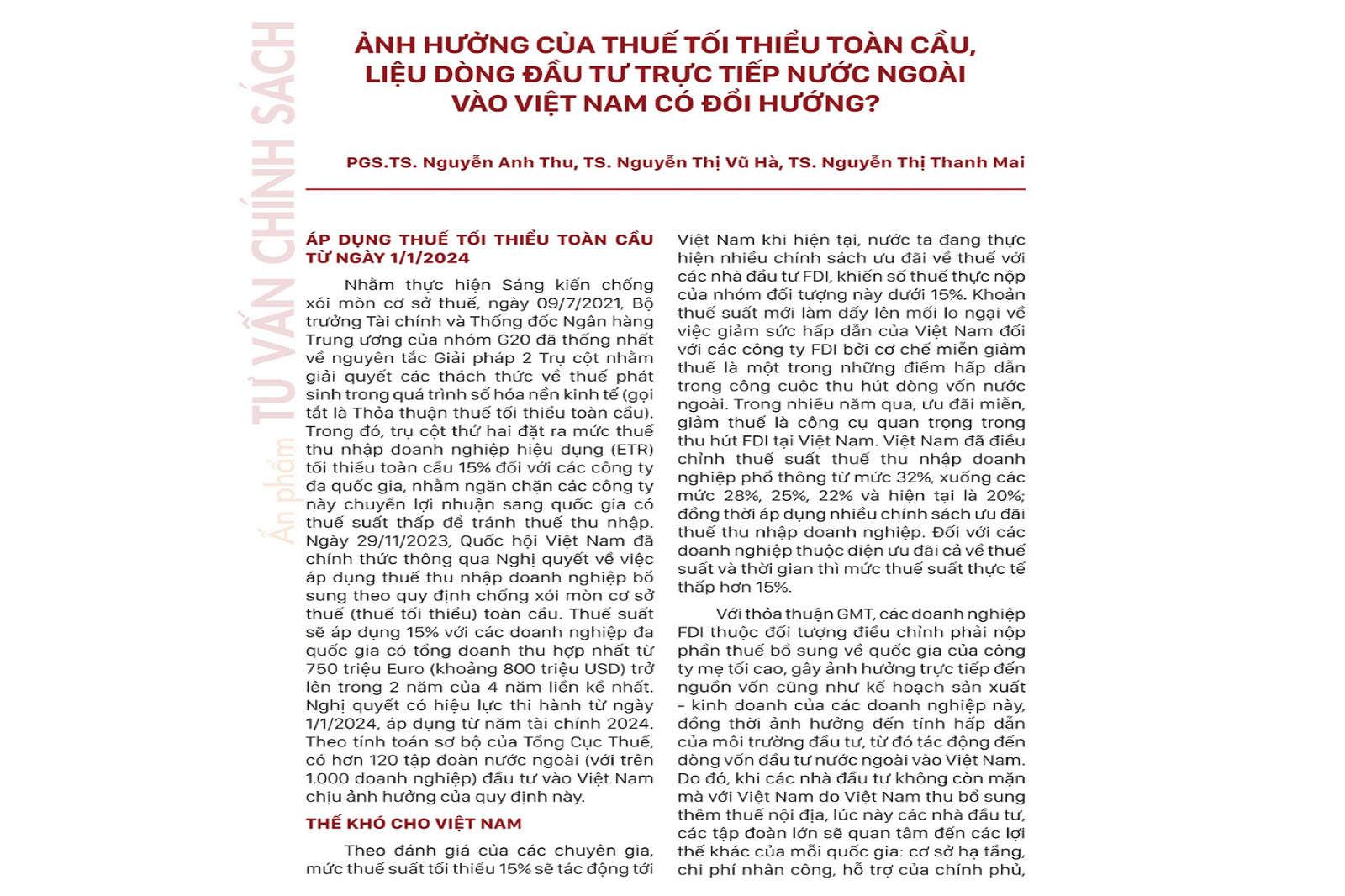
Will the Implementation of Global Minimum Tax Redirect Foreign Direct Investment into Vietnam?
To combat base erosion and profit shifting, on July 9, 2021, finance ministers and central bank governors of the G20 agreed on the principles of the Two-Pillar ...
More details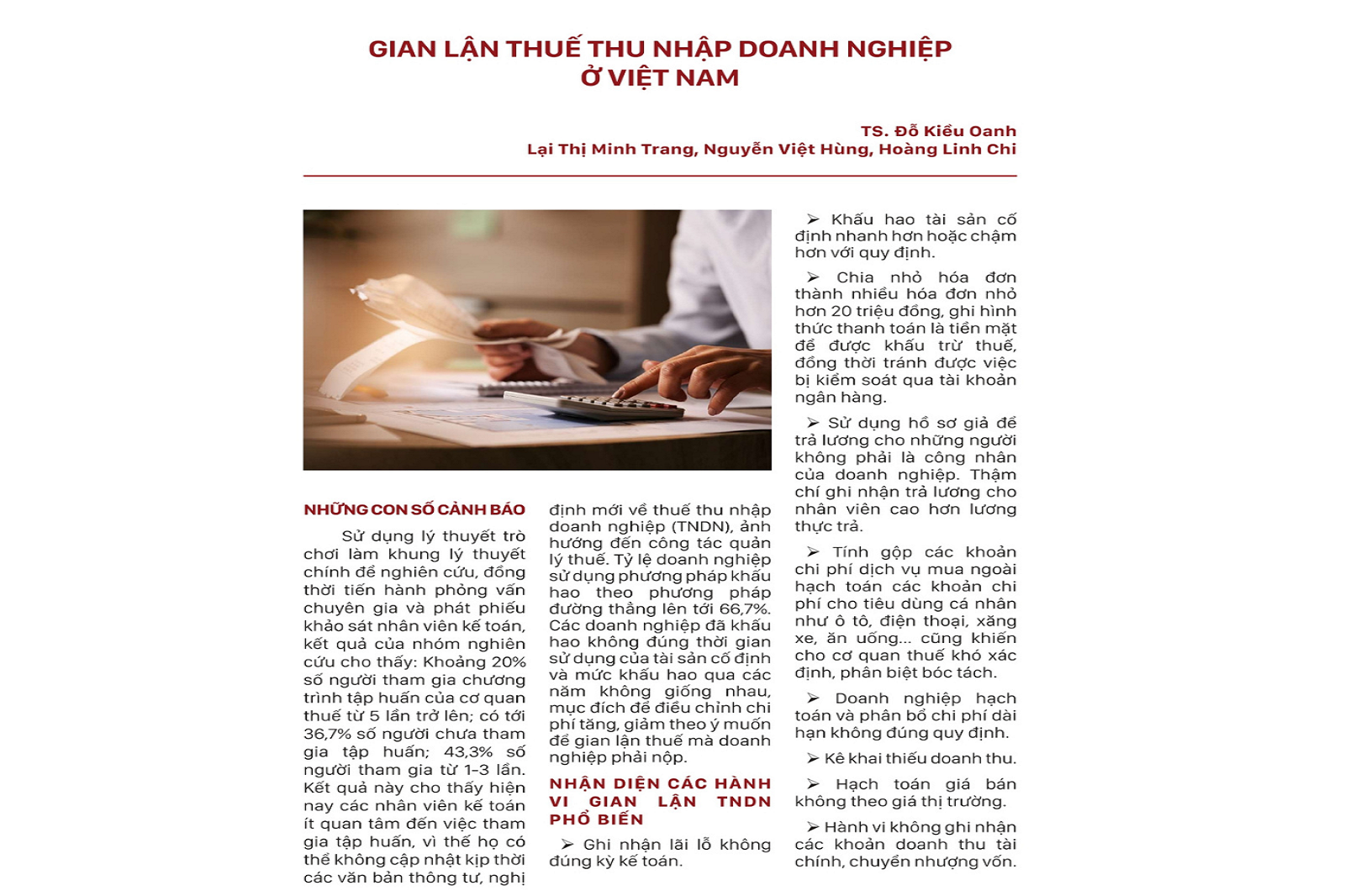
Corporate Income Tax Fraud in Vietnam
Using game theory as the main theoretical framework for the study, along with expert interviews and surveys of accountants, the research team found that ...
More details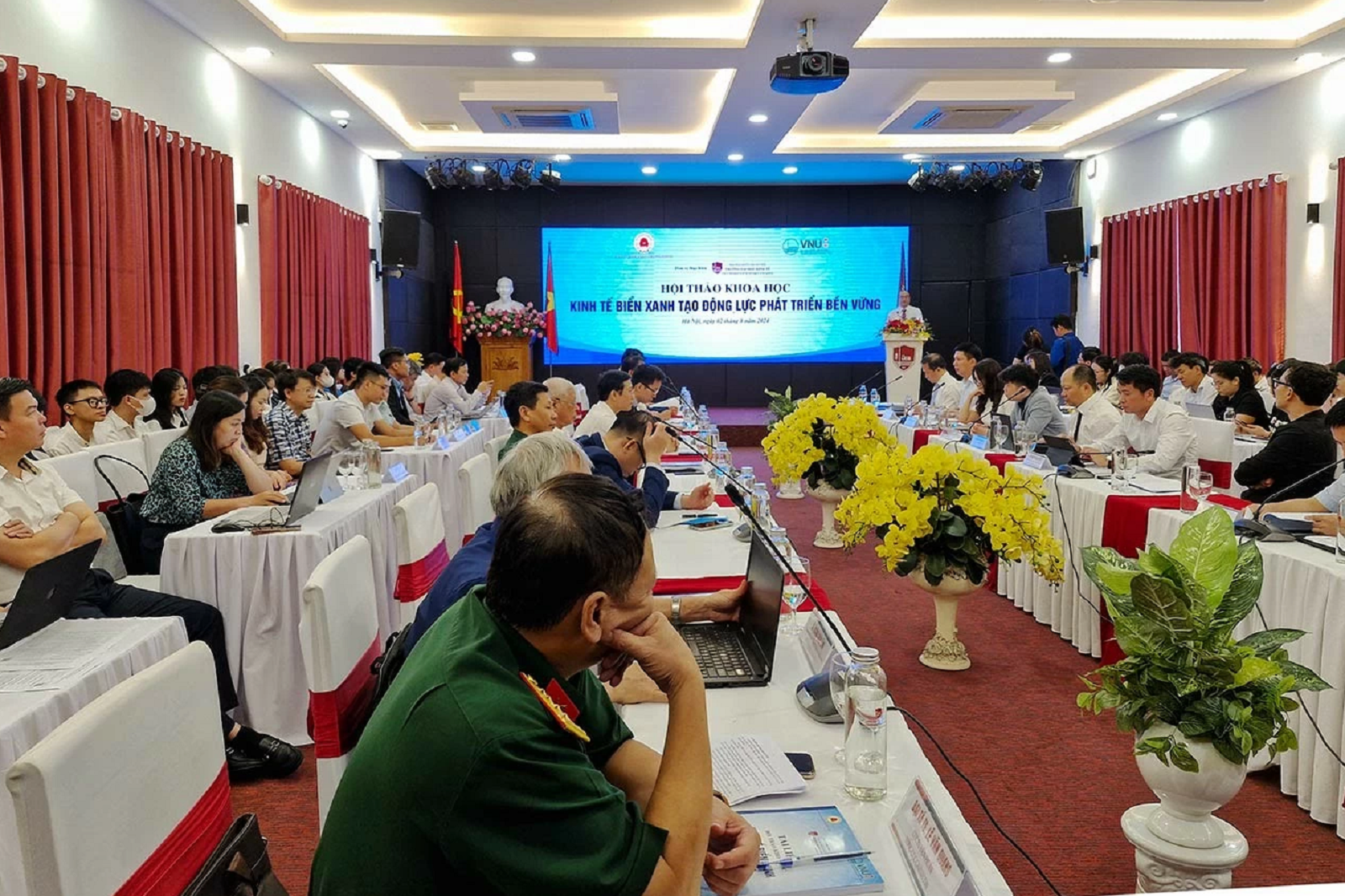
Blue Economy as a Driver for Sustainable Development
The green transition and the development of a blue economy are not only global trends but also consistent policies of the Party and the State of Vietnam, ...
More details
ASEAN Economic Cooperation Forum and Emerging Economies with the Russian Federation in the New Context: Issues and Prospects
Today, international economic cooperation between countries faces significant challenges. The trade volume between Russia and Vietnam, as well as between ...
More details
Contemporary economic issues in Asian countries
On December 16, 2022, UEB organized the international workshop “Contemporary Economic Issues in Asian Countries” (CEIAC 2022) to enhance scholarly and ...
More details
Regional economic integration and its impact on businesses
Research revealed how free trade and competition enhance the efficiency of businesses and economies. Import competition drives firms to increase productivity, ...
More details
Completing land pricing policies in Vietnam
The Land Law 2013, Decree No. 44/2014/NĐ-CP on land prices, and Circular No. 36/2014/TT-BTNMT detailing land valuation methods, construction, adjustment ...
More details